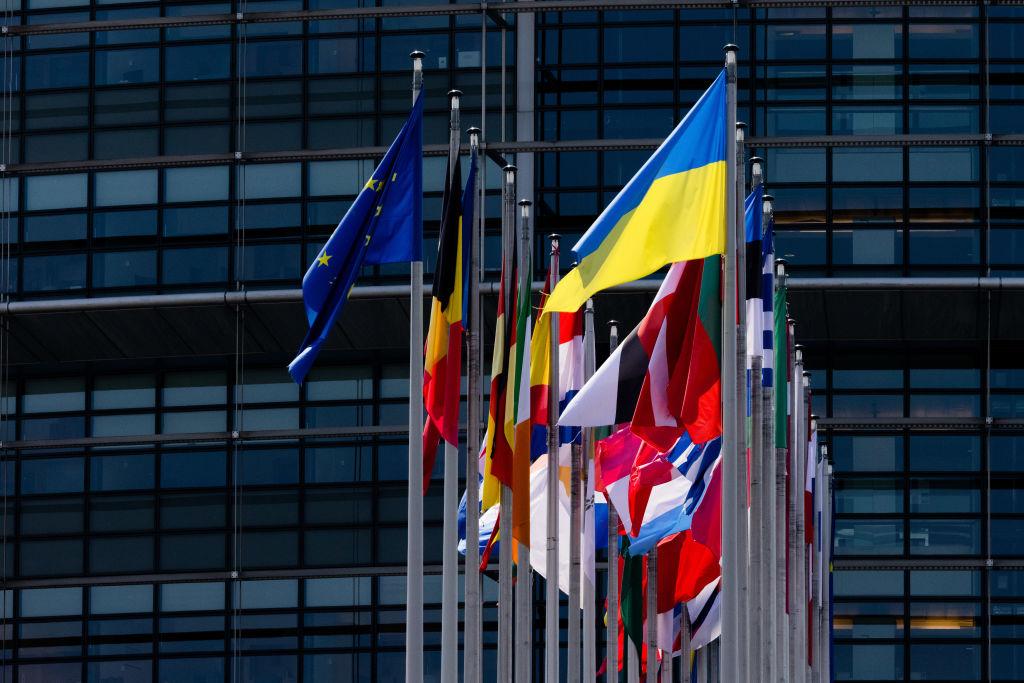
The 19th-century English historian J.R. Seeley famously said Britain acquired its empire in a ‘fit of absence of mind’. The same could be said of the post–Cold War European Union. In some ways, the EU’s enlargement beyond its Western European core happened in a fit of distraction after the collapse of the Soviet Union. Now, it is growing weary.
Europe’s boundaries have always been flexible in the minds of its leaders. To Charles de Gaulle, Europe included Russia as far as the Ural Mountains. In 2018, France’s current president, Emmanuel Macron, proposed a more nuanced, if controversial, definition: a Europe of ‘concentric circles’, with each circle signifying a different level of identity. It is a vision of a two-tier Europe in which Eastern and Southeastern European countries are put in their place.
While Macron’s idea never became official EU policy, it reflects an entrenched mental map that devalues Europe’s periphery. According to the worldview currently prevailing in the EU, the fringes are only important when the core needs them, or when they become a threat to its security.
At the 2020 EU – Western Balkans summit, during the early stages of the Covid-19 pandemic, Europe’s leaders approved a large aid package for Eastern and Southeastern Europe. In separate interventions, Russia and China did, too. But the EU also lent its support to the accession of Albania, Montenegro, Kosovo, Serbia, North Macedonia, and Bosnia and Herzegovina to the bloc. Then–German Chancellor Angela Merkel said the move responded to an ‘absolute geostrategic interest’.
Yet not even Russia’s war of aggression against Ukraine has brought these countries closer to membership. In June, the EU granted candidate status to Ukraine and Moldova, generating disillusionment among leaders in the Western Balkans, where accession negotiations have ground to a halt.
But why is Europe stalling? At the 2022 EU – Western Balkans summit, Europe’s leaders insisted that EU membership must be ‘based upon credible reforms, fair and rigorous conditionality and the principle of own merits’. In short, they said the region isn’t ready. But that isn’t the whole story.
There’s little doubt that Western Balkan instability, compounded by weakly established democratic institutions, underlies Europe’s hesitancy. Today, Serbia and Kosovo are at loggerheads over territorial and cultural issues. While Kosovo has made progress in implementing the rule of law and fighting corruption, tensions between ethnic Serbs and the Albanian majority keep the territory divided. Several EU members—Spain, Romania, Greece, Slovakia and Cyprus—don’t even recognise Kosovo’s sovereignty.
Likewise, Macedonia struggled with EU members’ demands. In 2019, it changed its name to North Macedonia under Greek pressure. And even though Bulgaria lifted its veto on North Macedonia’s EU accession in June, it insists that Macedonian cannot be recognised as an official language.
But none of these issues should block EU membership. The truth is that Europe is suffering from enlargement fatigue, particularly when it comes to countries that wouldn’t contribute to the EU budget if they joined.
The EU is also wary of authoritarianism. Tellingly, Slovenia’s then prime minister, Janez Jansa, himself a target of EU criticism, complained: ‘The problem is that 90% of the topics in the EU institutions are not dedicated to the strategic goal of enlargement. The topic is how to expel some members and thus not expand the EU, but reduce it.’
In a sense, Jansa was right. At a time when EU leaders struggle to confront illiberal governments in Hungary and Poland, admitting Serbia under autocratic President Aleksandar Vucic probably seems as worrying as it is exhausting. Likewise, EU leaders balk at pro-Russia sentiment. Since the Kremlin launched its invasion of Ukraine, both Vucic and Milorad Dodik, the president of Republika Srpska, the Serbian federal entity in Bosnia and Herzegovina, have refused to support EU sanctions against Russia.
Serbian nationalists have long allied with Russia. But Russia’s military setbacks in Ukraine have cost it support in the region. Today, Russian President Vladimir Putin understands the limits of his influence there. That became evident when, against all predictions, Russia didn’t veto the UN Security Council resolution extending the mandate of EUFOR—the European military force deployed in Bosnia to oversee the implementation of the 1995 Dayton Accords, which ended the Bosnian War. Vucic and Dodik even advised against a veto.
Russia fears that the alternative to EUFOR is a robust NATO, and that an end to it could resurrect a Bosnian mission for the alliance. Given this European military presence and US President Joe Biden’s intention to re-engage with the region, EU leaders likely think that Western Balkan accession can continue to wait.
Albania, Montenegro and North Macedonia are already NATO members, and Bosnia wants to join. This, too, permits a fatigued EU to keep the Western Balkan countries’ candidacies on hold. Macron’s Europe of concentric circles might not be official EU policy—but it surely seems like it.